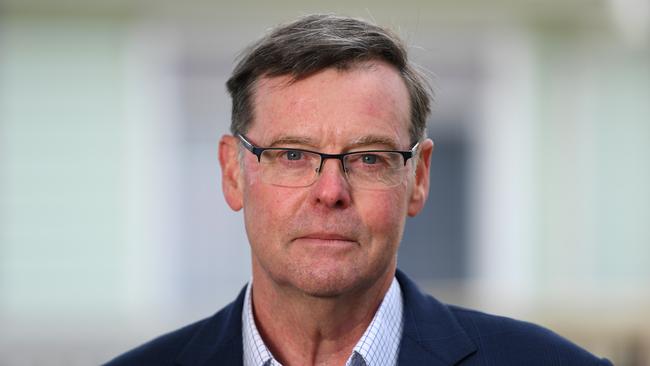Hospital no place for older Australians to die
The Council on the Ageing has appointed its inaugural Fellow, and Stephen Judd has plenty to say on how older people can live their best lives

Far too many older Australians take their last breath in a hospital when they should be spending their final weeks in a less medicalised, more personal setting, a key new ageing advocate says.
Stephen Judd also believes government projections of an “apocalyptic and inevitable tsunami” of older Australians with dementia may be overstated, with growing international evidence suggesting preventative health interventions can “bend the curve” on dementia.
Dr Judd has been appointed the Council on the Ageing’s inaugural COTA Fellow with a remit to press for broad policy change in health and aged care.
The former longstanding chief executive of aged care provider HammondCare believes residential aged care in the future could look very different from the nursing homes of today.
“Around 50 per cent of Australians die in hospital,” Dr Judd said. “This is a ridiculous number, as much as twice that of countries like Canada, Ireland and France.”
“Many are people requiring palliative care but not full hospital care. They may have terminal illnesses with a prognosis of three to six months and could be looked after in their final period in an aged care setting.’
Dr Judd, currently a Senior Visiting Fellow at UNSW’s School of Population Health, said this was a key health and ageing policy issue, and a significant business opportunity.
“The implications of carrying on as we are become enormous given the proportion of baby boomers about to enter this phase of their lives. We would have to build a dozen new large-scale hospitals to accommodate them.”
He also said dementia prevention would be a particular area of focus in his new role, given its impact both on individual quality of life and also the public purse.
“We’re told that without a medical breakthrough the number of people with dementia in Australia will be more than a million by the middle of the century. We’re constantly hearing the message we’re all knackered, we’re all on an escalator to old age and dementia,” Dr Judd said.
“No one knows if this is true but I’m pretty sure it’s not. All the research overseas is showing that the curve is bending on dementia as cardiovascular health improves and smoking rates reduce.
“I think the forward estimates in the Intergenerational Report and those in budget forward estimates need to be tested,” he said.
Dr Judd said his reason for stepping into the advocacy space in health and aged care stemmed from personal experience.
“They say all politics is local. Well, all health is personal. And issues of the health and aged care of older people is not relevant just for them, but for all Australians.
“My interest in the sector stems from having my mother, who had dementia, live with my family. My kids grew up with her in the house. They wouldn’t see aged care just as an issue for their grandma, but for everybody to understand and contribute to.”
COTA chair Jane Halton said the organisation “could not be more delighted Stephen has agreed to join us as the inaugural Fellow.”
“He thinks deeply about the rights of older people, particularly in aged care, and about the respect and dignity they deserve,” Ms Halton said.




To join the conversation, please log in. Don't have an account? Register
Join the conversation, you are commenting as Logout